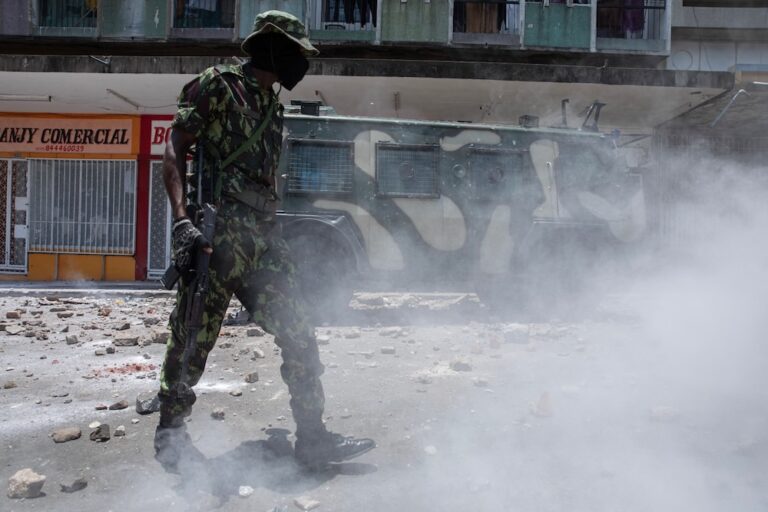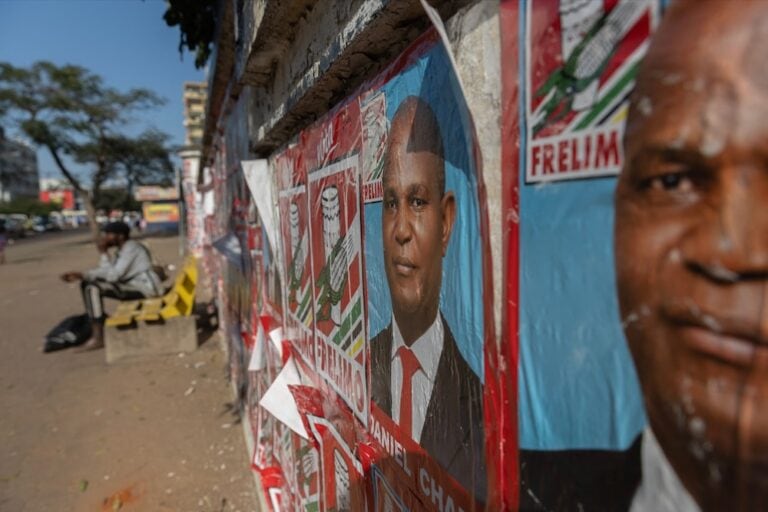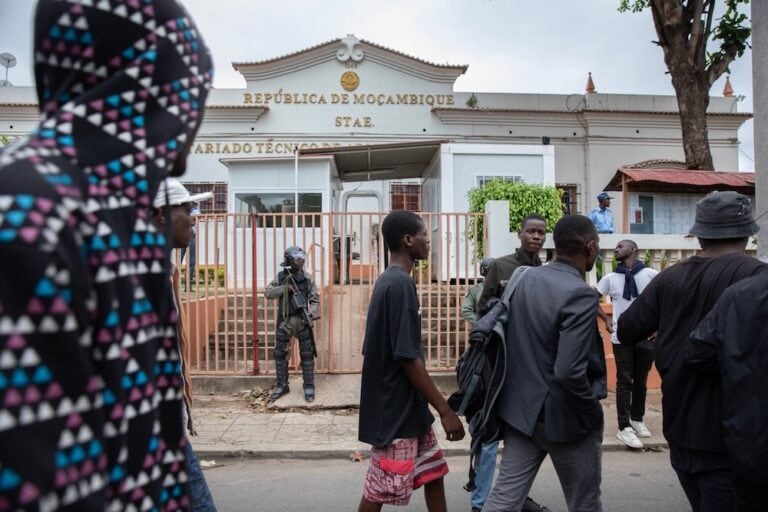(CPJ/IFEX) – The following is a 19 July 2001 CPJ press release: CPJ DELEGATION FINDS FEAR IN MOZAMBIQUE PRESS Maputo, Mozambique, July 19, 2001 – Eight months after the murder of investigative journalist Carlos Cardoso, Mozambican journalists told a delegation from the New York-based Committee to Protect Journalists (CPJ) that they are afraid to cover […]
(CPJ/IFEX) – The following is a 19 July 2001 CPJ press release:
CPJ DELEGATION FINDS FEAR IN MOZAMBIQUE PRESS
Maputo, Mozambique, July 19, 2001 – Eight months after the murder of investigative journalist Carlos Cardoso, Mozambican journalists told a delegation from the New York-based Committee to Protect Journalists (CPJ) that they are afraid to cover sensitive stories, particularly those involving corruption.
The delegation included CPJ board member Clarence Page, a columnist for the Chicago Tribune; CPJ deputy director Joel Simon; CPJ Africa program coordinator Yves Sorokobi; South African journalist Phillip van Niekerk; and Mozambican journalist Fernando Lima.
During a four-day visit to the Mozambican capital, Maputo, CPJ representatives met with dozens of journalists from print and broadcast media, both state-owned and private. The delegation was also received by high-ranking Mozambican government officials. All of the officials articulated a commitment to press freedom.
Journalists, however, presented a different picture. While there is no official censorship, journalists described many episodes of self-censorship. Several told CPJ that certain stories are off limits, particularly those involving corruption.
“There is fear when you get into the hardest part of the news,” one journalist said in an interview with the delegation. Another said, “Certain stories involving highly placed people-we think it’s best not to touch those.”
These findings are particularly disappointing given that CPJ and other press freedom organizations have been encouraged by Mozambique’s past record. The country is known for an environment in which both independent and state-sponsored media have competed freely, without official interference.
CPJ’s preliminary findings were outlined at a press conference in Maputo this morning. A more detailed report will be released at a later date.
Cardoso murder casts a shadow
Every person interviewed by the CPJ delegation agreed that the murder of Cardoso has left a serious gap in aggressive, investigative reporting. Many journalists said they were now afraid to follow in Cardoso’s footsteps.
Cardoso was a veteran independent journalist who edited the daily fax newsletter Metical. He was shot dead on November 22, 2000, as he left his paper’s offices in the Maputo suburb of Polana. After two vehicles cut off Cardoso’s car, two unidentified assassins opened fire with AK-47 assault rifles, killing him instantly and seriously wounding his driver.
One week before his death, Cardoso launched a campaign against what he called the “gangster faction” in the ruling Mozambique Liberation Front (FRELIMO), which he accused of provoking recent political violence in the country.
Shortly before Cardoso’s murder, Metical had been reporting aggressively on alleged wrongdoing at the Mozambique Commercial Bank. And on the day of Cardoso’s assassination, Radio Mozambique journalist Custadio Rafael was attacked, beaten and had his tongue slashed for “speaking too much,” according to news reports. Rafael had also been investigating the Mozambique Commercial Bank scandal.
Cardoso, 48, was one of Mozambique’s foremost media personalities. He was internationally acclaimed for his groundbreaking reporting on political corruption and organized crime in Mozambique, a country that is still recovering from a brutal, decades-long civil war.
Earlier in his career, Cardoso served as editor and later director of Mozambique’s state news agency AIM, from which he resigned in 1989. Before founding Metical in 1998, Cardoso ran another independent fax newsletter, Mediafax, which he launched in 1992. He sympathized politically with FRELIMO but often lambasted the government in his editorials.
Recommendations
Although a more detailed report will be released later, CPJ urges immediate steps by the Mozambique government to reduce the level of fear and foster a healthy media environment:
* CPJ calls on the government to publicly reaffirm its respect for the role of the press as a check on abuses of power. Journalists who pursue stories involving official corruption must be able to count on the full protection and support of authorities.
* CPJ urges the government to make the Cardoso murder investigation an ongoing priority and to aggressively pursue all avenues, regardless of where they lead. The best way to combat self-censorship is through a vigorous pursuit of justice in this case.
The CPJ delegation thanked the numerous government officials and private citizens who offered valuable information about Cardoso and the investigation.
However, the delegation expressed concern that a climate of fear surrounds the investigation. For example, one person who declined to meet with CPJ claimed to have received death threats. Several others cancelled meetings at the last minute.
CPJ is an independent, nonpartisan organization based in New York that investigates press freedom violations in more than 130 countries worldwide. For more information on CPJ, please visit our Web site at www.cpj.org.


